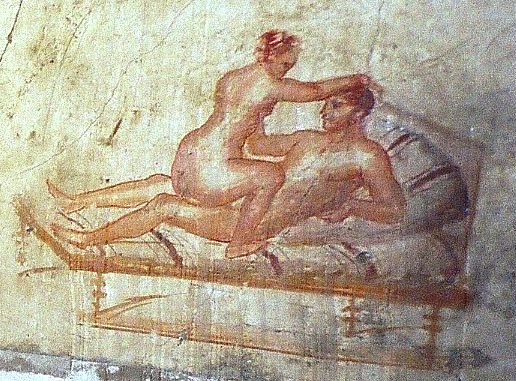Lucretius, De Rerum Natura 4.1105-1120
“And then when they consume the flower of their age
As their limbs are laced together, just when the body senses delight
And that Venus is about to sow the furrows of the feminine field,
They press their bodies together greedily and join their wet mouths
Trying to breathe each other in as they press lips into teeth—
All pointlessly, since they can’t rub anything from there,
Nor can they truly enter each other or leave for a single body.
For this is what they often seem to want and try to do.
That’s how eagerly they cleave to Venus’s re-combinations of flesh
While their limbs become liquid under pleasure’s force.
Finally, once the lust which has amassed in their veins erupts,
Then, for a moment, there is a brief lull in the violent fire.
But soon the rabid hunger and the same madness returns,
And they quest to fulfill what they desire,
But they cannot discover any trick to overcome the pain,
And they remain uncertain, wasting away from a hidden wound.”
denique cum membris conlatis flore fruuntur
aetatis, iam cum praesagit gaudia corpus
atque in eost Venus ut muliebria conserat arva,
adfigunt avide corpus iunguntque salivas
oris et inspirant pressantes dentibus ora—
nequiquam, quoniam nil inde abradere possunt
nec penetrare et abire in corpus corpore toto;
nam facere interdum velle et certare videntur:
usque adeo cupide in Veneris compagibus haerent,
membra voluptatis dum vi labefacta liquescunt.
tandem ubi se erupit nervis conlecta cupido,
parva fit ardoris violenti pausa parumper.
inde redit rabies eadem et furor ille revisit,
cum sibi quod cupiunt ipsi contingere quaerunt,
nec reperire malum id possunt quae machina vincat:
usque adeo incerti tabescunt volnere caeco.


